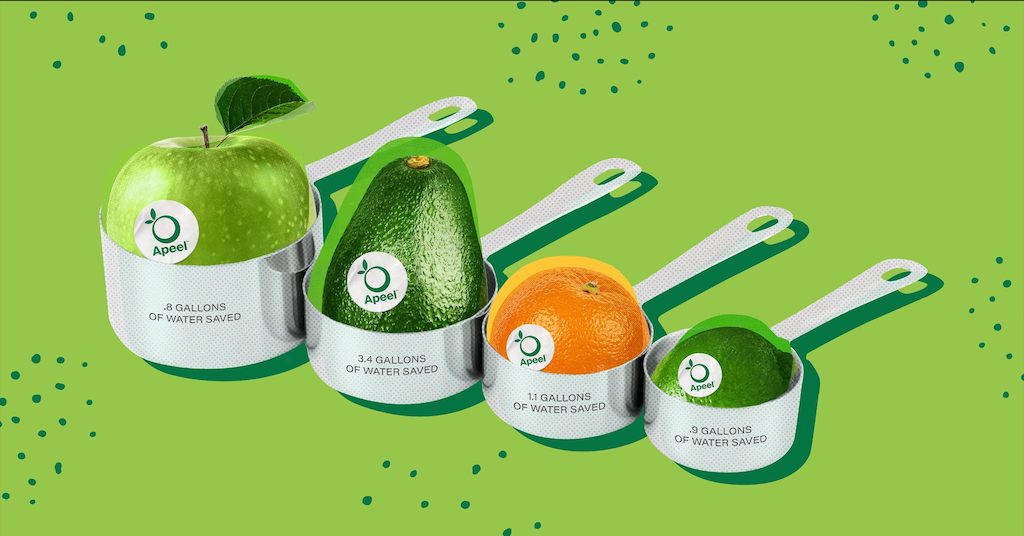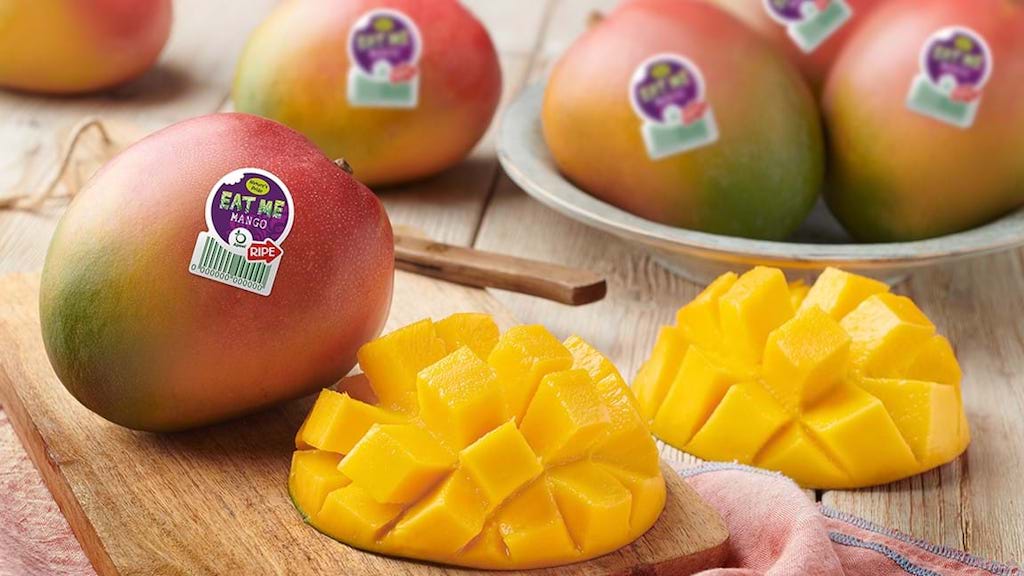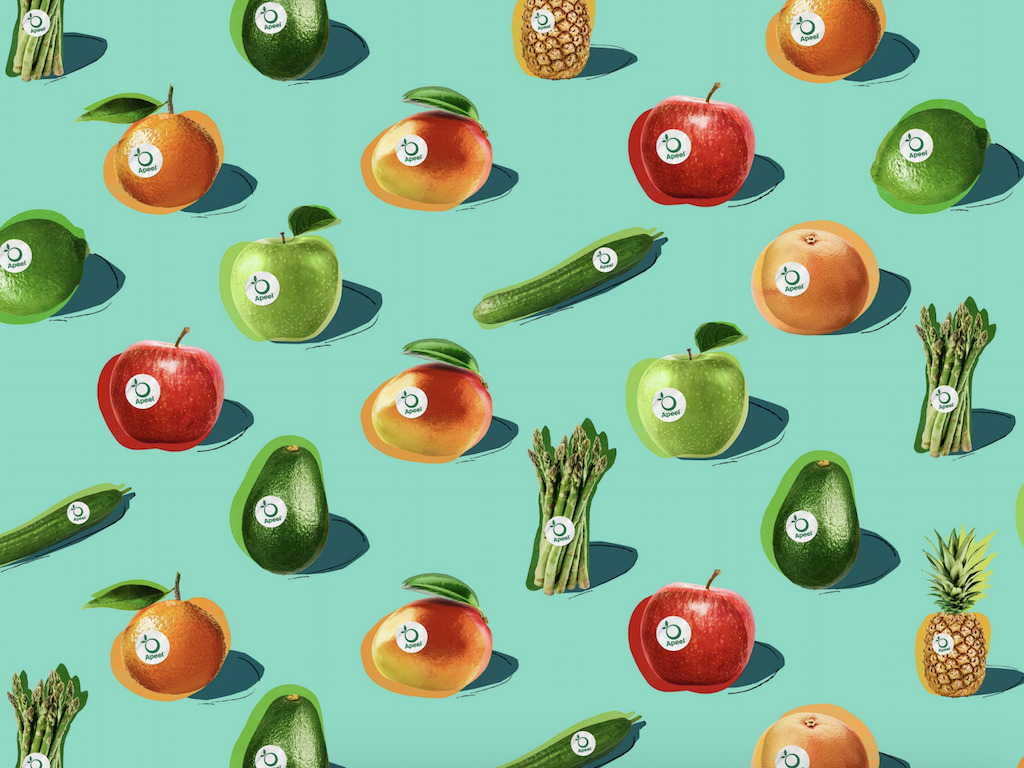Apeel: Pack Tech Co Keeps Avocados & Mangos Fresh, Now On A Mission To Help Smallholder Farmers Fight Food Waste Too
4 Mins Read
Apeel, the company whose technology slows down the rate of spoilage of fresh fruit, has several big-name partnerships under its belt. Currently, the California food waste fighting startup works with major produce suppliers like Del Monte and Nature’s Pride to protect avocados and mangoes from going bad. But they don’t want to stop there. Instead, Apeel is now bringing its technology to smallholder farmers in emerging markets, many of them food insecure, to help them join the food waste fight too.
At the moment, Apeel says that its plant-based protective layer on fresh produce helps retailers drive down as much as 50% of food waste. This “peel” developed by the startup is made from materials found inside the seeds and pulp of fruit and vegetables, and helps slow down the oxidation process and water loss that causes fresh produce to spoil – allowing retailers more time to display and sell the products, in turn bringing in greater profits, while ensuring less food ends up being thrown away.
Some of the partners that Apeel works with include Del Monte, who are applying the coating at the packing site to protect their avocados from going bad soon after reaching their retail destination. Last year, retail giant Walmart began trialling Apeel’s plant-based protective layer to replace the pesky single-use plastic film that used to coat cucumbers, while extending the product’s shelf-life.
Now, Dutch fresh produce supplier Nature’s Pride has introduced Apeel-protected mangoes to help the fruit last two times longer on shelves.

Mango production is widely distributed around the world and particularly concentrated in emerging markets where the fruit is produced by small farmers who find economic opportunity by sending their produce to consumers abroad.
James Rogers, Founder & CEO, Apeel
The startup says the latest mango partnership is embedded into its broader goal to bring its food waste solution down to the start of the food value chain – smallholder farmers in emerging markets who play a vital role in supplying at least 50% of the world’s fresh produce, yet they suffer from some of the highest levels of food insecurity.
Altogether, smallholder farmers around the world make up 65% of the world’s poor working adults and a significant portion of the over 700 million people who continue to experience malnutrition and hunger.
Growing fresh, perishable produce offers large income opportunities for farmers – but without access to cold storage and refrigeration, many can only tap into small local markets rather than lucrative international demand. That’s where Apeel comes in.
“Mango production is widely distributed around the world and particularly concentrated in emerging markets where the fruit is produced by small farmers who find economic opportunity by sending their produce to consumers abroad,” explained Apeel founder and CEO James Rogers.
“Almost ten years since our first field trials with small farmers in Kenya, I’m ecstatic to be introducing Apeel mangoes to the market for the first time through our partnership with Nature’s Pride. Apeel mangos will significantly reduce waste throughout the supply chain which strengthens the link between small farmers and developed economies so that we can feed more people and take care of our planet at the same time.”

We hope to establish broader commercial operations for smallholder farmers that will enhance opportunities for them to participate in global export markets and save produce from going to waste.
Apeel
Nature’s Pride’s mangoes are grown in Brazil, Peru, Dominican Republic, Puerto Rico, Ivory Coast, Mali, Senegal, Israel and Spain – but around the world, there’s a huge opportunity to get Apeel’s technology to other major mango producing countries, particularly in Southeast Asia, a market that the startup hasn’t yet entered. But it has plans to.
“Apeel’s mission is to create abundance for all by combating the global food waste crisis,” a spokesperson for the company told Green Queen Media. “We hope to establish broader commercial operations for smallholder farmers that will enhance opportunities for them to participate in global export markets and save produce from going to waste.”
Fuelled by US$30 million in funding raised back in October 2020 from the International Finance Corporation (IFC), Temasek, and Astanor Ventures, the company says it’ll be targeting smallholder farmers in Sub-Saharan Africa, Central and South America, and Southeast Asia.
What the company ultimately wants to do is to build an entire “Apeel-powered supply chain” in these areas, where the benefits of longer-lasting produce doesn’t just reach the retailers who see their profits go up from reduced spoilage, but helps the people who produce the food.
“These supply chains will not only give smallholder farmers more time to market their fresh produce,” the Apeel spokesperson said. “But also greater access to higher-value markets previously out of reach because of inevitable perishability.”
All images courtesy of Apeel.




